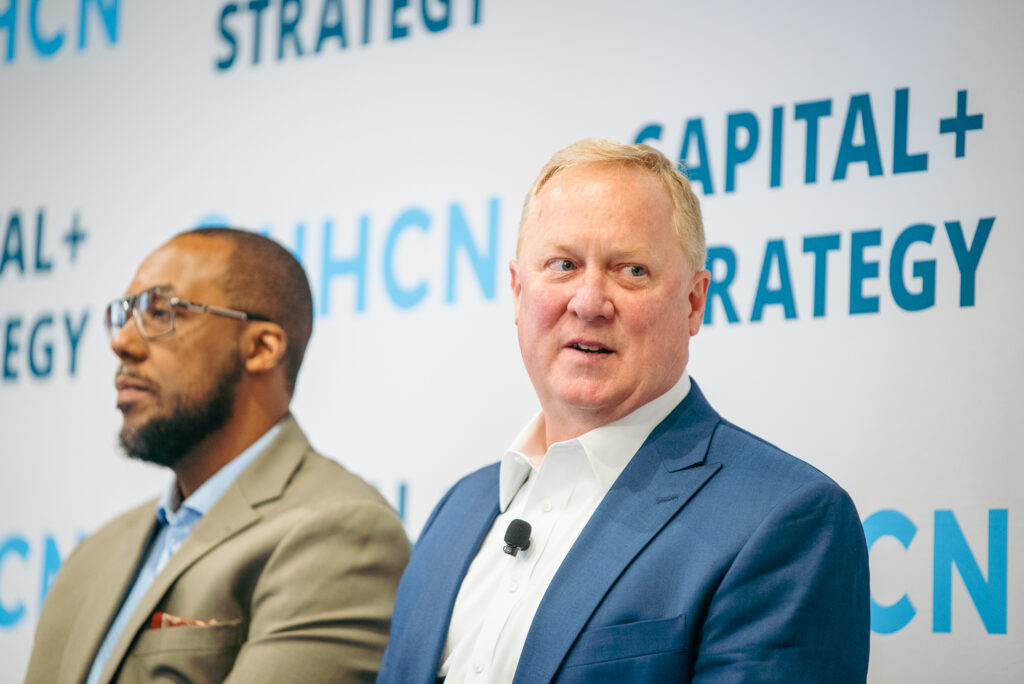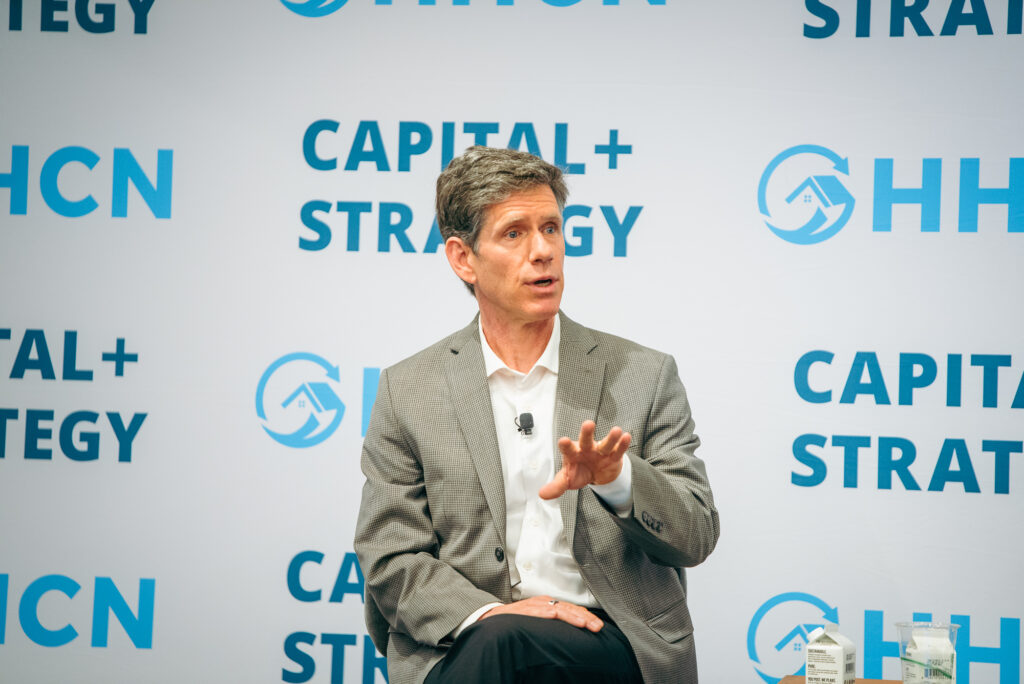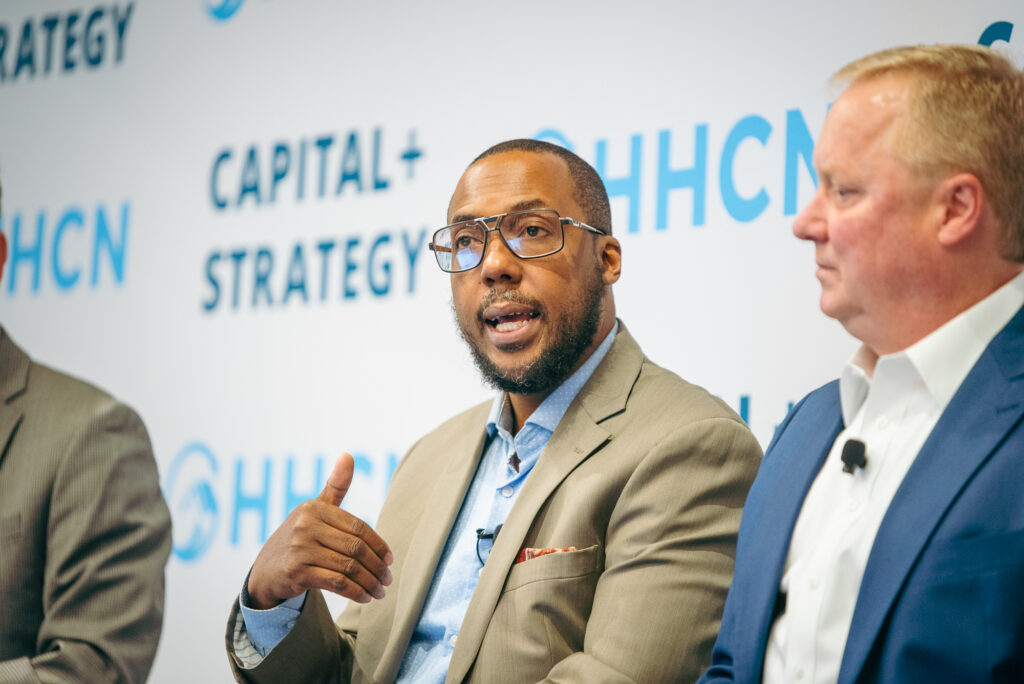Notifications
ALL BUSINESS
COMIDA
DIRECTORIES
ENTERTAINMENT
FINER THINGS
HEALTH
MARKETPLACE
MEMBER's ONLY
MONEY MATTER$
MOTIVATIONAL
NEWS & WEATHER
TECHNOLOGIA
TV NETWORKS
VIDEOS
VOTE USA 2026/2028
INVESTOR RELATIONS
COMING 2026 / 2027
ALL BUSINESS
COMIDA
DIRECTORIES
ENTERTAINMENT
FINER THINGS
HEALTH
MARKETPLACE
MEMBER's ONLY
MONEY MATTER$
MOTIVATIONAL
NEWS & WEATHER
TECHNOLOGIA
TV NETWORKS
VIDEOS
VOTE USA 2026/2028
INVESTOR RELATIONS
COMING 2026 / 2027
About Me
 Latinos Media
Latinos Media Latinos Media provides all types of news feeds on a daily basis to our Members
Posted by - Latinos Media -
on - April 1, 2023 -
Filed in - Salud -
-
741 Views - 0 Comments - 0 Likes - 0 Reviews
Medicare fee-for-service rates are not where home health providers want them to be. That’s forced their hand when negotiating rates with other payer sources.
“We are payer agnostic, but we’re payer selective,” Traditions Health CEO David Klementz said Thursday at Home Health Care News’ Capital + Strategy event in Washington, D.C.
Traditions Health is a Nashville-based home health provider and one of the fastest-growing companies in the space. Traditions provides home health, hospice and palliative care services in 18 states.
Klementz believes there’s a disconnect between home health providers and the Centers for Medicare & Medicaid Services (CMS), and that disconnect is partially driven by managed care rates.
“From my perspective, it’s two-fold,” he said. “On the Medicare side, is the data they’re looking at correct, and what methodology are we using? There needs to be a collaborative discussion on that because it’s not effective with our current cost structure. The methodology, some might argue, is flawed. On managed care: there needs to be recognition that Medicare is subsidizing managed Medicare. There needs to be recognition when you don’t consider that in your economics, you’re not really looking at the profitability.”
 Traditions Health CEO David Klementz speaks at HHCN’s 2023 Cap + Strat
Traditions Health CEO David Klementz speaks at HHCN’s 2023 Cap + Strat
The day after stakeholders had a testy call with CMS over payment rates, home health leaders spoke about the current state of the business, and how they are driving good outcomes and profitability despite numerous headwinds.
Thriving in contemporary home health careHome health providers had to put a lot into preparing for the Patient-Driven Groupings Model (PDGM).
Since then, COVID-19 has come into the fold. As has the Home Health Value-Based Purchasing (HHVBP) Model. But PDGM prep is still serving them well.
“We’re really doubling down on the strategy we put in place in preparation for PDGM, which was to get the care teams more integrated and to be very thoughtful about care planning,” Michael Johnson, president of the home health division at Bayada Home Health Care, said at the event. “That ties into utilization, because the evidence doesn’t suggest that you get better outcomes with [more] visits.”
Efficient utilization also means taking the right amount of time in a care plan to treat patients, Johnson said. That’s something that can be lost on providers.
“The human body can only heal so fast,” Johnson said. “If we’re doing 15 or 20 visits in the first 30 days, we are rushing beyond the pace at which the body can heal. In spacing out visits, what we’re seeing is our quality scores are improving, utilization has actually improved and as we move into HHVBP, we have to be thinking about utilization and thinking about being measured on outcomes.”
 Michael Johnson, president of the home health division at Bayada Home Health Care, speaks at HHCN’s 2023 Cap + Strat.
Michael Johnson, president of the home health division at Bayada Home Health Care, speaks at HHCN’s 2023 Cap + Strat.
The Moorestown, New Jersey-based Bayada Home Health Care offers a range of home-based care services in 23 states and six countries outside the U.S.
Bayada, too, is finding the right balance between Medicare fee-for-service and Medicare Advantage (MA) business.
“One is just a number of referrals you take with patients that are MA or PPS, the other is the number of visits you deliver to those folks,” he said. “In our huddles, we’re looking at, ‘Are we giving the right amount of care for a Medicare patient who’s funded for more visits — they’re literally paying for more services — and are we doing the same, or hopefully less, for a Medicare Advantage beneficiary? Not because we liked them less, but they are paying for less, and we just have to get more creative.”
That strategy has worked well for Bayada, a company that employs over 28,000 nurses, home health aides, therapists, social workers and other care professionals.
However, it’s not as easy for smaller providers like the Dearborn, Michigan-based American Advantage Home Care.
American Advantage Home Care provides skilled nursing, specialty care and rehab services in seven counties in the Southeast Michigan area.
Certain patients can be challenging for smaller providers, for instance.
“In the view of needing to grow and being open to a diverse amount of referral sources, it gets challenging,” Cleamon Moorer, president and CEO of American Advantage Home Care, also said at the event. “If there is some progress that we know we could make within a certain period for a patient — and even if that acuity is high — we try to offset taking in that patient for a patient with lower acuity. [We’ve had to be] very creative, thinking about cases on a daily basis and meeting with our intake and scheduling team regularly to make sure that we got the right mix going on.”
 Cleamon Moorer, president and CEO of American Advantage Home Care, speaks at HHCN’s 2023 Cap + Strat.
Cleamon Moorer, president and CEO of American Advantage Home Care, speaks at HHCN’s 2023 Cap + Strat.
Understanding that reality, and abiding by that strategy, is what is keeping American Advantage afloat – and growing.
“Utilization is big for us,” Moorer said. “In view of a patient’s needs and their levels of acuity, we have to be very honest on the front end as to whether a patient has too high of an acuity for us to be able to match the quality of care that we would like to provide.”
The post ‘We’re Payer Selective’: How Home Health Providers Are Navigating The Payer Evolution appeared first on Home Health Care News.